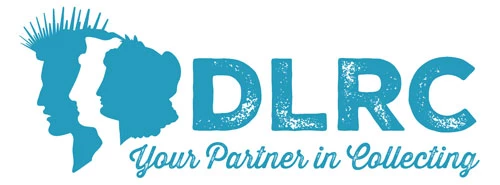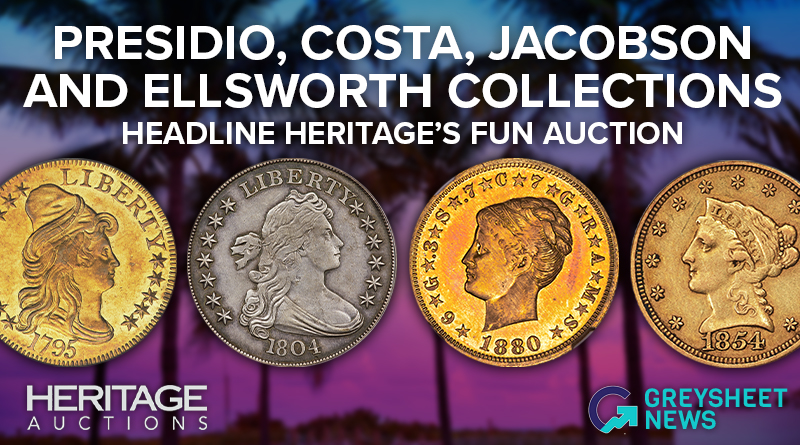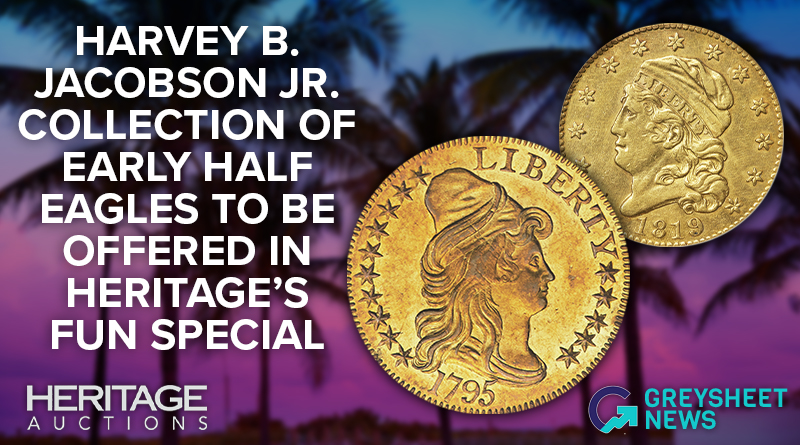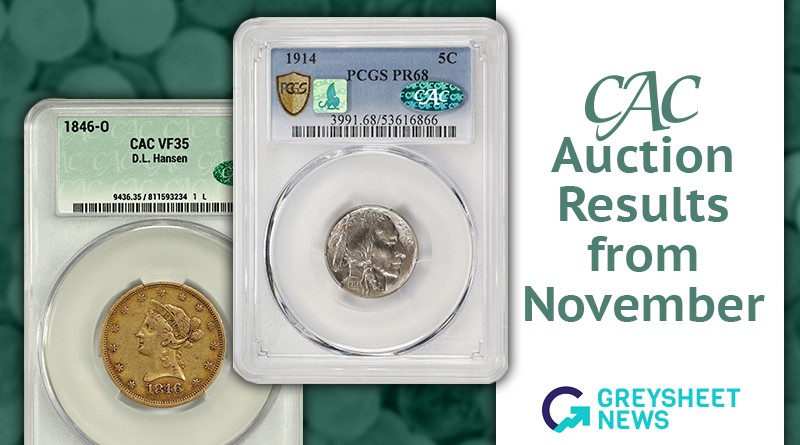Greysheet & CPG® PRICE GUIDE
- U.S. Coins /
-
Private & Pioneer Gold Values
About Private & Pioneer Gold
The expression private gold, used with reference to coins struck outside the United States Mint, is a general term. In the sense that no state or territory had authority to coin money, private gold simply refers to those interesting necessity pieces of various shapes, denominations, and degrees of intrinsic worth that were circulated in isolated areas of the United States by individuals, assayers, bankers, and so on. Some numismatists use the words territorial and state to cover certain issues because they were coined and circulated in a territory or state. While the state of California properly sanctioned the ingots stamped by F.D. Kohler as state assayer, in no instance were any of the gold pieces struck by authority of any of the territorial governments. The stamped fifty-dollar and other gold coins, sometimes called ingots, but in coin form, were made by Augustus Humbert, the United States Assayer of Gold, but were not receivable at face value for government payments, despite the fact that Humbert was an official agent. However, such pieces circulated widely in commerce.Usually, private coins were circulated due to a shortage of regular coinage. In the Western states particularly, money became so scarce that the very commodity the pioneers had come so far to acquire was converted into a local medium of exchange. Ephraim Brasher’s New York doubloon of 1787 is also a private American gold issue.
From the Greysheet Marketplace
Buy Now: $70,000.00
Buy Now: $56,425.00
Buy Now: $18,458.00
Buy Now: $11,724.38
Buy Now: $18,500.00
Buy Now: $100.00
Buy Now: $3,950.00
Buy Now: $3,250.00
Buy Now: $1,549.38
Related Stories (powered by Greysheet News)
View all newsLegal Disclaimer
The prices listed in our database are intended to be used as an indication only. Users are strongly encouraged to seek multiple sources of pricing before making a final determination of value. CDN Publishing is not responsible for typographical or database-related errors. Your use of this site indicates full acceptance of these terms.
































 Loading more ...
Loading more ...
















